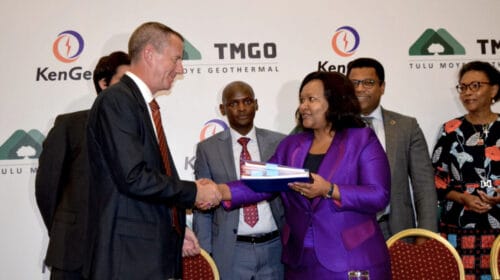NIGERIA’S ENERGY FUTURE: CLIMATE CHANGE & PREPARATIONS FROM NOW
Power generation for any economy is important to development and advancement; this is usually a factor for economic standing of nations. Power as a component of advancement prompts nations to find ways to improve existing sources for efficiency, transmission loss reduction and affordability; research for new sources are also continuous.
Sources of power for Nations in the Sub-Saharan include thermal and hydro; issues with these sends attention to use of renewable energy, nuclear energy and others. Nigeria, a top economy in the Sub-Saharan adopts on a small scale renewables for electrical and mechanical power generation.
Solar, Wind and Biomass are examples of renewable sources known in Nigeria; their deployment on a large scale is part of Government plans to diversify power sources. Nigeria, for her status as a developing economy faces several issues; these issues require balanced attention towards projected advancement.
Plans for large scale deployment of these sources can start from now to subsume in future budget and to affirm suitability of selected site; for these, deployment may come in about 7years. Sites will be identified from now and studied further to determine average wind speed or solar radiation intensity against data recorded from time past to ascertain suitability.
Topography, depth to water level, possibility of alluvion and more will be useful to know more about selected sites or sites considered for selection. Construction of modern landfills is necessary to harness power from Biomass; upgrade of existing ones to required standard is a necessity too.
Government from now can buy bonds and equities to provide funds for the projects at that time; budget cuts to some sectors planned and announced from now may provide extra finance for the project. Deals by the government with proven manufacturers will ensure that manpower training and wind turbine or photovoltaic cells peculiar for this environment are used.
Reports from pundits in relation to geological, geographical and meteorological status of different places in Nigeria should be reviewed closely by authorities to ensure that good sites are selected. Site mapping, study of suitability, research for new power sources, development of smarter photovoltaic cells and more are preparations that should start now. A particular source maybe used for two or more states sharing borders to increase their focus for growth in that line and ease in transmission.
Traditional sources of power used in Nigeria will not be phased out but will be used in parts of states that due to distance may cost much for transmission system or some other states that will later join the first stage deployment of this alternative energy. Nigeria from today can prepare for energy generation to accommodate demands, projection, industries and population for the future; active and serious plans should start from now to tilt Nigeria closer to advancement.
David Stephen writes science news on ground report and lives in Surulere, Lagos.



